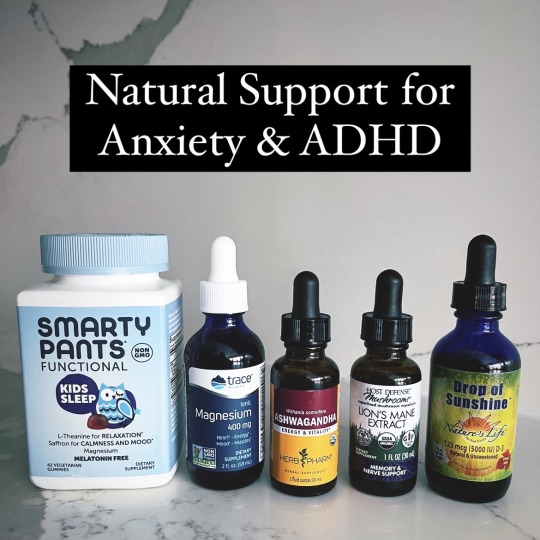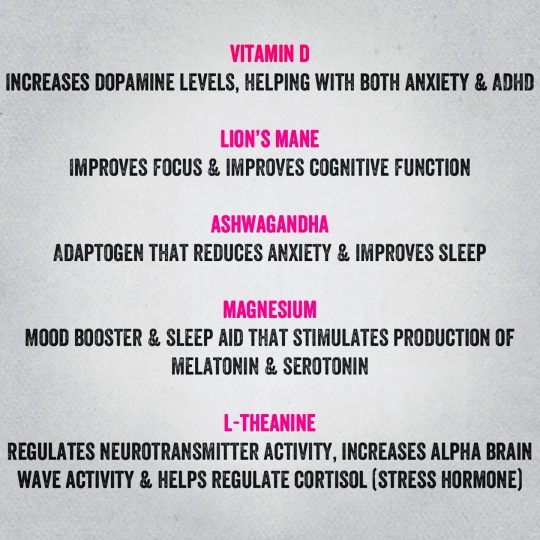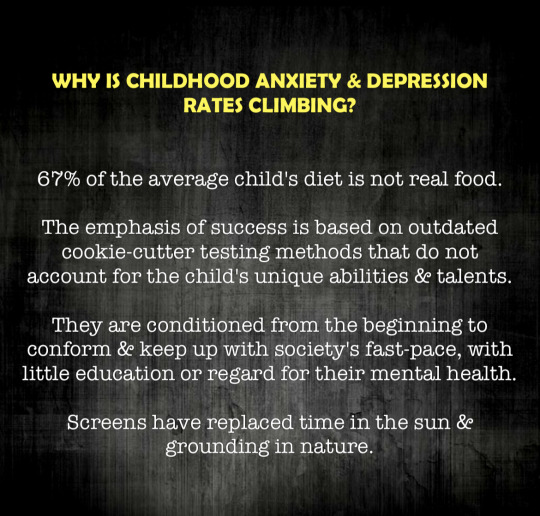#childhood anxiety
Text
How I was raised: "Whatever your hand finds to do work at it with all your might as if working unto the Lord and not for men."
How I am raising my kids: Anything worth doing is worth doing poorly. Say you spilled milk and you can't bring yourself to clean it up? Throwing a towel on it is better than nothing.
#parenting#hyperactive kids#actually neurodivergent#actually adhd#actually autism#ex christian#ex evangelical#intermittent explosive disorder#religious trauma#recoving perfectionist#actually anxiety#childhood anxiety
87 notes
·
View notes
Text
The compulsive urge to apologise and the terrifying weight of being a burden
My anxiety is so heavy in my chest that it’s choking me
It’s like someone’s put a weight in the middle of my ribs and I can never quite reach it
#childhood anxiety#anxienty#the compulsive need to apologise#i’m sorry#i hate everything#fuck this#im so tired#quote#i just want to sleep#i’m so sorry#chronic fatigue#generalised anxiety disorder#chronic illness#depresssion#mental illness#trauma#insomia#insomniac#I got like an hours sleep?#maybe two?#my insomnia is so bad#it’s wild#I sleep like less than two hours five days a week#and then sleep 20+ the other two days#and somehow function#yay
9 notes
·
View notes
Text
1/13/2023: Kids
It's nearly impossible to break a child's spirit. Kids are always happy. Not literally, but they bounce back from abuse pretty quickly. They can still be happy and funny and have good times with people, including their abusers.
Seems like you lose that ability as an adult. It's probably because adults can look back and realize how fucked up the situation was. Kids don't have that perspective and often blame themselves or think the situation was normal.
I didn't think it was normal, but I didn't start hating my parents as much as I started hating myself.
The "normal" images from my childhood are like memories from another universe. I loved crafting when I was a kid. Once, when I managed to track glitter around the house, my sister thought a fairy had visited us. That's a cute memory that's so out of place in my mind.
My POS sister was depressed for a short period when she was bullied in eighth grade, but she bounced back from it and became a happy, healthy adult (the opposite of me, huh?) You really do get over shit when you're younger.
I didn't "get over it" when I was a child, but I could still function even on the days the abuse took place. Not anymore.
Thanks for reading,
🚸
#child abuse#childhood abuse#childhood trauma#abuse survivor#emotional abuse#ptsd recovery#trauma survivor#childhood memories#child neglect#childhood anxiety#entry
3 notes
·
View notes
Text


These are some of the natural ways I help support my daughter's anxiety and ADHD. I give her Vitamin D, Lion's mane, and Green tea (L-theanine) in the mornings for focus and a mood boost. At night, she gets calming supplements like Ashwagandha, Magnesium and L-theanine. (She also gets THC-free CBD oil, as needed). A common side effect of anxiety and ADHD is poor sleep. Many of the nighttime supplements help with this as well.
It is worth noting that my daughter does guided meditations at night, or restorative yoga/meditation with me. For those wondering, yes we have tried medications. Three, in fact. However, all of them made her not feel like herself. More concerning is that she started to show symptoms of depression and described it as feeling like she "can't get out from under a heavy cloud of sadness." I was not willing to trade focus for her mental health. I listened to her, and we found that the natural supplements listed have shown more improvement in both areas than the medications, and without the negative side effects. I hope this post helps bring awareness to some of your other options, and helps you find what works for you or your children. Be well!
#anxiety #ADHD #anxietyrelief #integrativenutrition #mentalhealth #mentalhealthIShealth #ashwagandha #Ltheanine #magnesium #lionsmane #vitaminD #mentalhealthawareness #wellness #meditation #depression #anxietyawareness #ADHDawareness #ADD #ADHDparenting #parenting #health #ADHDsupport #ADDsupport #ADHDmanagement #anxietymanagement #PTSD #nutrition #integrativenutritionist #nutritionist #healthcoach
2 notes
·
View notes
Text
This is for the people who didn’t party in their teens and twenties. For the people who didn’t have that “coming of age” movie experience with shenanigans and revelations. This is for the people who mostly keep to themselves. Who maybe prefer things to be quieter and gentler. This is for the people who don’t feel like they belong in a culture that values loud parties and flashing lights. I see you. And you are valid.
#teenagers#early twenties#late twenties#growing up#childhood#nostaliga#introvert#homebody#quiet life#outcast#shy#college#university#high school#neurospicy#neurodivergent#mental health#mental illness#social anxiety#it’s okay
71K notes
·
View notes
Text
So I’m curious if anyone else did this or if this was a specific expression of my anxiety as a child:
I lied about my favorite color for years to others and myself. I got anxious when first asked and threw out green bc I hadn’t considered it really. I just like colors (🏳️🌈 still do tho).
Then when asked abt shade I popped out neon green which like okay broski that should rattled you anxiety too. Because my favorite color is yellow and realized that first time I was subconsciously like you can’t say yellow that would be weird and judged (it’s not weird nor worth judging).
But I still said with my whole chest neon green and like that’s not even my favorite shade of green nor was it ever really it was just closest to yellow and I liked it fine. I actually prefer a deep vibrant forest green that speaks of old growth a whole lot more.
I realized neon green wasn’t sitting with me right and had sit and like psychoanalyze myself bc I gaslight gatekeep girlbossed myself out of even internal thinking yellow is my favorite color. To what end either bc this anxiety fuel play most likely had no lasting impression on anyone else. But it was a big deal to young (more) awkward me and I didn’t start saying yellow was my favorite color until I started college. (I had transitioned out neon and just said green and like orchid purple were my 2 favs) I just think it was such a ridiculous thing for me to have been so anxious about but yeah my favorite color is yellow.
Also this was brought up bc I looked at my dashboard and was like whys it purple and green wouldn’t I have incorporated yellow? Then I remembered the whole schtick. I laugh now but like why was I like this. Anyways in case anyone was/is anxious like this hey man your favorite color is perfectly fine and legit only important bc it’s something you like.
Now I surround myself with yellow and it makes me happy, friends/fam have an easy theme/idea for any gifts, and I laugh at myself for how serious I was about it as a kid.
TLDR: I fucken love yellow and don’t censor you fav colors dudes just enjoy it.
#Yellow#Favorite color#why am i like this#why did i do this#just roll with it#own your favorites dudes#childhood anxiety
1 note
·
View note
Text
An uncool person in love with the cool stuff
Daily writing promptTell us about a time when you felt out of place.View all responses
I was always termed as the quiet kid, the weirdo, the girl who is most lost. To be honest, I did get lost, but inside my own head, because mostly the conversations ran in circles and I got tired quickly ( neurotypical lingo for this is: she gets bored very quickly).
So, it won’t be a stretch to say that I…

View On WordPress
#adhd#anxiety#childhood anxiety#childhood mental health issues#dailyprompt#dailyprompt-2080#fitting in#mental health
0 notes
Text
7 Treatment Options for Anxiety in Children
Anxiety is a natural response to stress and is experienced by individuals of all ages, including children. It becomes a concern when it starts interfering with a child's daily activities, social interactions, and overall well-being. Addressing anxiety in children is crucial to help them develop healthy coping mechanisms and lead fulfilling lives. This article explores various treatment options available to manage anxiety in children, empowering parents and caregivers with knowledge to support their young ones effectively.

1. Behavioral Therapy
Behavioral therapy is an effective treatment for anxiety in children. Cognitive-Behavioral Therapy (CBT) is a commonly used approach that helps children identify and challenge negative thought patterns and behaviors. Through CBT, children learn coping strategies and develop problem-solving skills to manage anxiety-provoking situations. This therapy often involves role-playing and exposure techniques, gradually exposing the child to feared situations in a controlled and supportive environment.
2. Play Therapy
For younger children who may have difficulty expressing their feelings verbally, play therapy can be beneficial. Play therapists use toys, games, and creative activities to engage with the child and help them communicate their fears and worries in a non-threatening manner. This therapeutic approach allows children to process emotions and build resilience in a safe and enjoyable setting.
3. Medication
In some cases, when anxiety is severe and significantly impacts a child's life, healthcare professionals may consider medication. Medication should be prescribed by a qualified pediatrician or child psychiatrist and is often used in conjunction with other therapies. Commonly prescribed medications for childhood anxiety include selective serotonin reuptake inhibitors (SSRIs) or serotonin-norepinephrine reuptake inhibitors (SNRIs). These medications can help alleviate symptoms and create a stable foundation for other therapeutic interventions.
4. Parental Involvement and Support
Parents play a crucial role in supporting their anxious children. Understanding anxiety and its effects is the first step to providing appropriate assistance. Being empathetic, patient, and non-judgmental fosters an environment where children feel safe discussing their fears. Additionally, establishing consistent routines and encouraging open communication can help reduce anxiety triggers.
5. Mindfulness and Relaxation Techniques
Teaching children mindfulness and relaxation techniques can help them manage anxiety when it arises. Techniques like deep breathing exercises, progressive muscle relaxation, and guided imagery can be effective tools for calming an anxious mind. Practicing these techniques regularly can empower children to cope with stressful situations proactively.
6. School Interventions
Anxiety often manifests in school settings, leading to academic challenges and social withdrawal. Collaborating with school personnel, including teachers, counselors, and administrators, can be essential in developing a supportive plan for the child. Creating an individualized education plan (IEP) or 504 plan can provide accommodations and strategies to address anxiety-related difficulties at school.
7. Family Therapy
Sometimes, anxiety in children can be influenced by family dynamics or stressful events. Family therapy can help address any underlying issues that may contribute to the child's anxiety. In this setting, the entire family can learn effective communication and problem-solving skills, fostering a supportive environment for the child's emotional well-being.
Conclusion
Anxiety is a prevalent concern in children, but there are various effective treatment options available. From behavioral therapy and play therapy to parental involvement and mindfulness techniques, the aim is to empower children to cope with anxiety and develop resilience. Each child is unique, and their response to treatment may vary, so a personalized approach is essential. Seeking professional guidance from pediatricians, child psychologists, or licensed therapists can aid in identifying the most suitable treatment plan for each child. With the right support and interventions, children can navigate anxiety successfully and thrive in all aspects of their lives.
#Anxiety in children#Childhood anxiety#Signs of anxiety in kids#Managing anxiety in children#Anxiety disorders in young people#Anxiety treatment for kids#Helping children with anxiety#Coping strategies for anxious children#Child mental health and anxiety
0 notes
Text
One day the air is going to smell the same as it did when you were a child.
#tumblr#personal#cottagecore#positive mental attitude#mental health#childhood#positive life#positive thoughts#positive quotes#positivity#its going to be okay#depression#anxiety#getting better#health
851 notes
·
View notes
Text

#childhood trauma#trauma memes#bpd life#actually bpd#bpdmemes#bpd feels#bpd blog#bpd memes#bpd mood#bpd problems#bpd#borderline blog#borderlinememe#mental illness#mental illness memes#mentalillnessmemes#mentally ill#mentally ill memes#depressing memes#anxiety memes#memesdaily
8K notes
·
View notes
Text
My 13 year old got flustered while Trick or Treating. The house in question is impressively decorated for Halloween, with lights and everything, but the doormat says "Go away". Kid stands on the porch for a solid minute debating with himself on if this person is celebrating Halloween or not.
#actually neurodivergent#actually autistic#actually autism#actually adhd#rejection sensitivity#actually anxiety#actually anxious#childhood anxiety#taking things literally#conflicting information#does not compute
3 notes
·
View notes
Text
10/8/2022: Normal
I wrote the other day that when I was a child, I still felt happy and confident at times, but something lurked underneath the happiness--a crawling feeling that something wasn't "right" about me. It's like a constant droning hum in the background. I'd stop thinking about it once in a while, but it was always there.
I still feel like that. I haven't felt happy since I was 13, but I'll have times when I feel accomplished and even a little confident. On rare occasions, I actually start to feel "normal." I remember that I have a personality underneath all this bullshit. I feel like a human being again.
But it doesn't last long because I always snap back to reality and remember the abuse and self-hatred. I stop feeling confident because I think of the ways that my parents and my worthless sack-of-shit sister would laugh at me. Believe me, there's nothing I can do that they wouldn't laugh at. The way I acted, talked, looked, joked, walked, blah blah--it was all up for grabs. And probably still is. I've heard my dad and my POS sister making fun of me before.
I stop feeling like a real person. I'm back to feeling like a dissociated ghost. I don't think there's a real, functioning human being underneath all of this--or if there is, I lost touch with her a long time ago.
I'm not sure how to describe it. I just feel--lesser. I feel normal for a second, then remember that I'm NOT normal. I have no relationship with my relatives. My brain is scattered beyond repair. I dissociate constantly. I hate every single thing about myself, and God knows that my parents, POS sister, elementary school classmates and toxic, abusive "friends" undermined my confidence at every turn.
This isn't a person. This is some barely functioning "thing" floating around the planet. God knows my worthless sister outright called me "that thing" multiple times (funny how Mom and Dad weren't too quick to correct her.)
I don't know if it's ever going to change. Don't know if I'll ever feel like a person again. Sometimes, I think I was human once, a long time ago, but then I shifted out of reality. Now I'm just trying to exist.
Thanks for reading,
👻
#childhood abuse#child abuse#childhood trauma#childhood anxiety#dissociation#actually dissociative#dissociative#actually mentally ill#depersonalisation and derealisation#entry
2 notes
·
View notes
Text

And we wonder….
#childhood anxiety#childhood depression#anxiety#depression#anxietyrelief#depression relief#mentalhealth
1 note
·
View note
Text
Nobody is “too young” to be cynical or jaded or hate their life. There is no appropriate age for that. If someone is experiencing that at any age, their mental health is at risk. Doesn’t matter how young they are, or how easy their life seems. Just because existential dread didn’t hit you until later in life, doesn’t mean everyone else gets to be so lucky.
“You think life sucks now? Just wait until you’re grown” okay grandpa what if they don’t make it to adulthood? What if it gets worse until they only see one way out and they take it? Stop being dismissive. Stop forcing your problems onto young people and start taking them seriously about things. Period.
(Inspired by this post)
#childhood trauma#adverse childhood experiences#depression help#childhood depression#late diagnosis#child advocacy#neurodivergent#neurodivergence#neurodiversity#autistic kids#emotional abuse#tw sui implied#tw sui talk#complex trauma#depression anxiety#childhood emotional abuse#childhood emotional neglect#kids are people too#anti fakeclaiming#fake claiming#comorbid conditions#comorbidities#mental health matters#mental health representation#mental health education#intersectionality#child health#depression tips#mental health rant#actually autistic
455 notes
·
View notes
Text
theresa caputo, the long island medium, was actually such a comforting person to me growing up?? like I'd watch her show and yeah she's strange, but she also got overwhelmed in situations with a lot of people and always seemed to be feeling other people's emotions really strongly??? and I remember this one time she went to a restaurant with her husband and she had to make sure they got a table in the corner of the room because being surrounded by people was so hard for her and, like... 11 year old me with anxiety and trauma was like oh, she gets it, and it was such a light bulb moment for me that made me feel a little less alone even if I was scared all the time and didn't have much support, so... idk if that's an experience anyone else has had but yeah theresa caputo kinda goes hard
0 notes
Text
You know what is just mind boggling? Neurotypical people exist. Like there are people who can just DO things and not have depression, anxiety (in every form ever), RSD, sensory overloads, and not get overwhelmed. Like there are people who can work for eight hours every day and still do things after. People who can make phone calls with no struggle. Who aren't constantly bombarded by a cacophony of thoughts both good and bad when they do things. Who have anxiety but it isn't crippling. who can spend hours, WEEKS with people and not get tired or fear that everyone there hates you. People who have no idea what Depression or intense trauma feel like. People who hear instructions and do it right first go. People who can follow a conversation without zoning out, or having to mask.
Like. Do neurotypical people actually exist?
Because I can't even imagine what it would be like to be neurotypical. Or mentally healthy. Both sound alien and foren. But like. Obviously they exist because neurodivergent people wouldn't struggle so much if not for how the world was structured for Neurotypical people but I don't know if I've ever met a neurotypical.
idk. food for thought I guess.
#neurodiverse stuff#adhd problems#childhood trauma#adhd#high functioning depression#trauma#highly sensitive people#depersonalization#toxic family#emotional abuse#neurodiversity#neurotypical#social anxiety#social issues#random thoughts#random post#idk how to tag this#relatable#rsd#adhd rsd#neurodivergent#adhd stuff#neurodivergence
943 notes
·
View notes